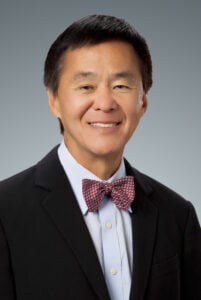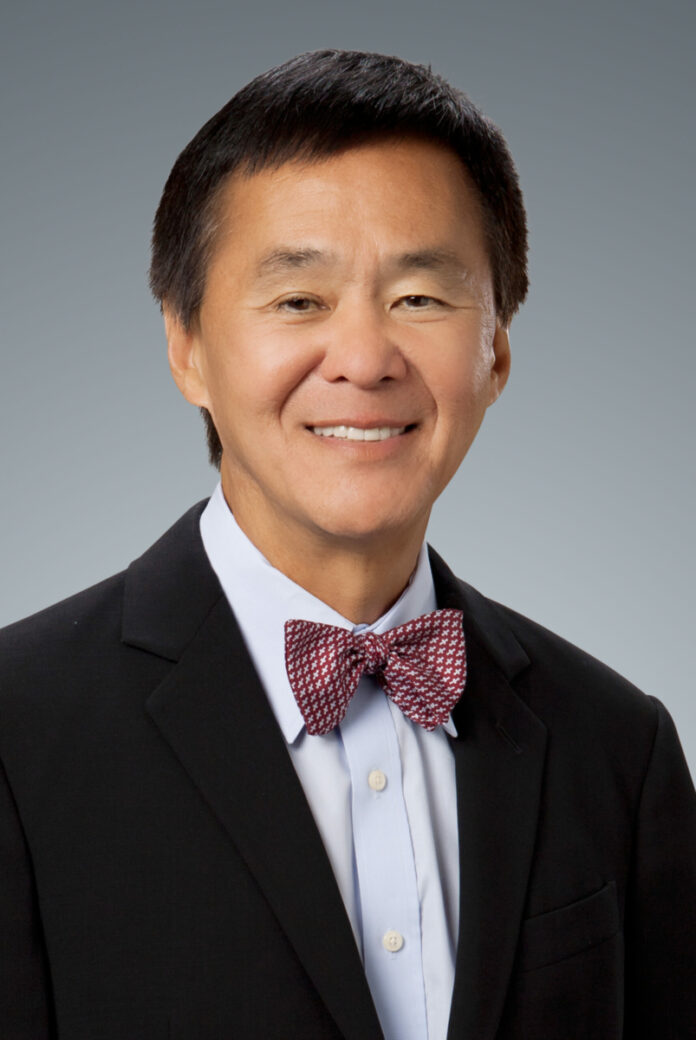MORGAN CHU
IRELL & MANELLA LLP, Partner

Throughout his decades-long career as a litigator, Morgan Chu has secured an impressive total payout of more than $9 billion for his clients.
Chu joined the Century City-based Irell & Manella in 1977, and his intellectual property practice has drawn acclaim for its success and payouts — with one client alone obtaining nearly $3.3 billion in patent outcomes. Chu has also been a prolific student; he earned bachelor’s, master’s and doctoral degrees from UCLA, a master of studies in law from Yale Law School and, finally, his law degree from Harvard Law School — not bad for a then-25-year-old high school dropout.
Outside of work, Chu serves on the board of City of Hope and is also board director for both the City of Hope National Medical Center and City of Hope Medical Foundation. He is also a member of the Public Counsel board of directors.
How did you discover your interest in law? And how did you arrive at your specialty?
I was born being curious, about everything. Not knowing anything about law made me curious about it. Add to that the world of technology, with so many different areas of science and engineering.
All are fascinating. Combine the two — law and technology — and it is everything, everywhere, all at once. I am in heaven every day.
What was your backup plan, if you had one?
I never had backup plan. If I grew bored, then I would just take up something new, or maybe something old that might be fun. I did consider playing poker for a year fulltime.
Tell us about the most noteworthy or interesting case (or cases) that you’ve been involved with.
Every case is fun. Recently, we pursued patent infringement cases against Intel. We won a $2.3 billion judgment in Waco, Texas. We are told that it is the largest patent judgment ever. (There were larger jury verdicts overturned by the trial courts that were never entered as judgments.)
We then had another trial in Austin, Texas, against Intel. We won an additional $948 million verdict.
We had another case that we took to the U.S. Supreme Court. The government wanted to charge our client for the government’s attorneys’ fees, win or lose. That did not seem right.
The appeals court initially ruled against us. We then argued the case before the U.S. Supreme Court. We won.
How did the pandemic affect your career, and what do you think is on the horizon for the legal industry?
I had in-person jury trials and remote arbitrations during the pandemic. Doing things remotely is, well, more remote. It is not ideal for the cross-examination of witnesses.
What is the biggest challenge that comes with your job?
Every day is a challenge. Harnessing the talents of amazing lawyers, legal assistants, and staff is important. Learning ways to explain difficult technology to courts and juries is daunting. Beating back tough, smart opponents is scary. I love it all.
You have a perhaps unusual educational journey to becoming a lawyer. Has that played a role in how involved you have been with educational institutions and causes?
Yes. My educational journal reflects my curiosity about everything, everywhere, all at once. All of the time. This is great fun. Aren’t I lucky?

